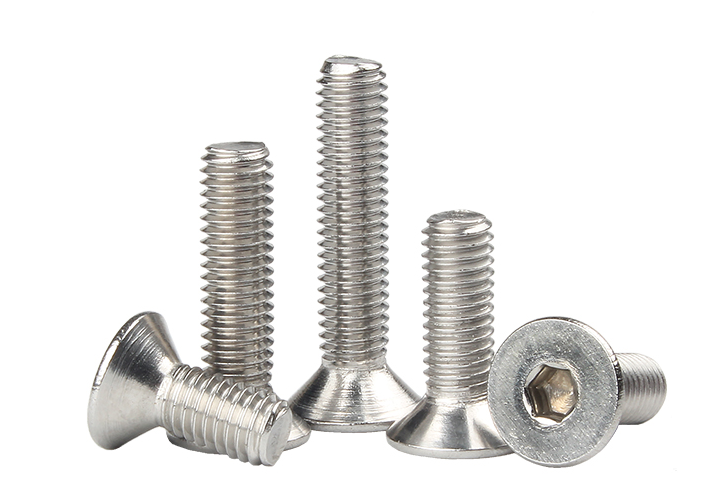

self tapping screw material
Dec . 12, 2024 11:10 Back to list
self tapping screw material
Understanding Self-Tapping Screw Materials
Self-tapping screws are essential fasteners widely used across various industries, from construction to automotive manufacturing. Their unique design allows them to create their own threads when driven into a material, which eliminates the need for pre-drilling holes. However, the effectiveness and longevity of self-tapping screws greatly depend on the materials used in their construction. This article explores the various materials used for self-tapping screws, their properties, advantages, and specific applications.
Common Materials for Self-Tapping Screws
1. Steel Steel is the most commonly used material for self-tapping screws. It is strong, durable, and versatile, making it suitable for many applications. Steel screws are often coated with materials like zinc or chrome to improve corrosion resistance and enhance aesthetics. The hardness of steel allows these screws to penetrate tough materials, including metal and wood, making them ideal for construction and manufacturing.
2. Stainless Steel Stainless steel screws are known for their exceptional corrosion resistance. This material is particularly useful in environments exposed to moisture or chemicals, such as marine applications and chemical processing facilities. They retain their appearance longer than carbon steel screws and are less likely to rust, although they can still be more expensive. Stainless steel’s tensile strength and resistance to deformation make it a reliable option for heavy-duty applications.
3. Aluminum Aluminum self-tapping screws are lightweight and corrosion-resistant, making them suitable for applications where weight is a critical factor. They are typically used in the automotive industry, aerospace, and electronic equipment where minimizing weight is essential. Aluminum screws are not as strong as steel but can be sufficient for specific tasks, especially when paired with other materials.
4. Plastic Self-tapping screws made from plastic are utilized in applications where it is essential to avoid metal components, like in the electronics industry or when fastening plastic components together. Plastic screws are lightweight, resistant to corrosion, and do not conduct electricity, making them ideal for sensitive electronic devices. However, they may not provide the same level of strength as metal screws and are best suited for lighter applications.
self tapping screw material

5. Bronze and Brass Bronze and brass self-tapping screws are used in specialized applications requiring excellent corrosion resistance, particularly in marine environments. These materials are relatively soft compared to steel but offer good resistance to tarnishing and oxidation. Bronze screws are often used in boat construction and marine hardware, while brass screws are popular in decorative applications due to their appealing finish.
Factors to Consider When Choosing Materials
When selecting self-tapping screws, it is essential to consider several factors, including
- Corrosion Resistance Assess the environment where the screw will be used. If moisture or chemicals are present, opt for stainless steel or coated screws. - Strength Requirements Evaluate the strength needed for the application. For heavy-duty applications, steel or stainless steel is recommended. - Weight Considerations For lightweight applications, especially in aerospace or portable devices, aluminum offers a feasible solution. - Conductivity In electrical applications, plastic screws may be preferable due to their non-conductive nature.
Conclusion
Choosing the right material for self-tapping screws is crucial for achieving the desired performance and longevity in various applications. Steel, stainless steel, aluminum, plastic, bronze, and brass all have unique properties that cater to specific needs. By understanding the characteristics of each material, users can make informed decisions that enhance the efficiency and durability of their projects. As technology advances, the development of new materials and coatings will continue to improve the functionality and applicability of self-tapping screws across diverse industries.
Latest news
-
High-Strength Hot Dip Galvanized Bolts - Hebei Longze | Corrosion Resistance, Customization
NewsJul.30,2025
-
Hot Dip Galvanized Bolts-Hebei Longze|Corrosion Resistance&High Strength
NewsJul.30,2025
-
High-Strength Hot-Dip Galvanized Bolts-Hebei Longze|Corrosion Resistance&High Strength
NewsJul.30,2025
-
Hot Dip Galvanized Bolts-Hebei Longze|Corrosion Resistance&High Strength
NewsJul.30,2025
-
Hot Dip Galvanized Bolts - Hebei Longze | Corrosion Resistance, High Strength
NewsJul.30,2025
-
High-Strength Hot Dip Galvanized Bolts-Hebei Longze|Corrosion Resistance, Grade 8.8
NewsJul.30,2025

